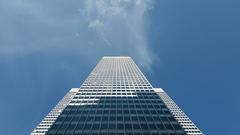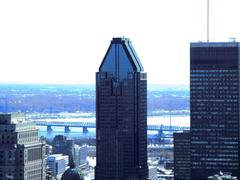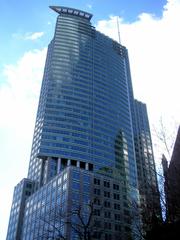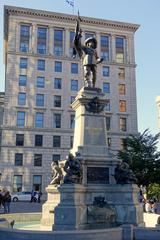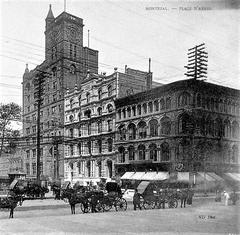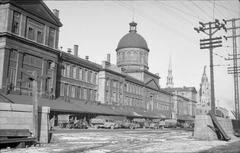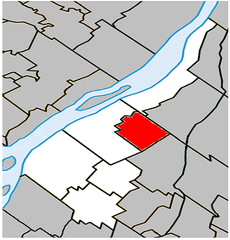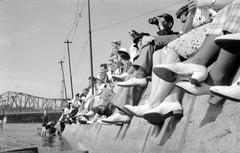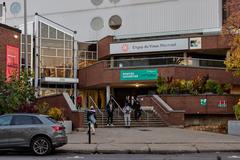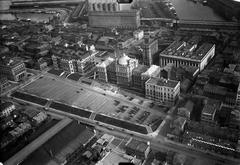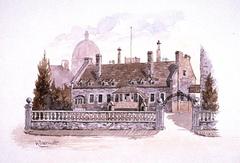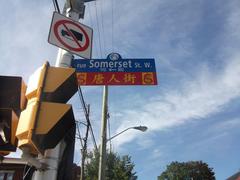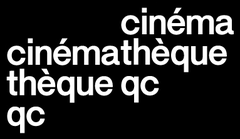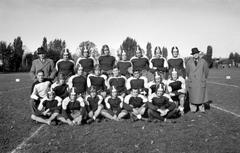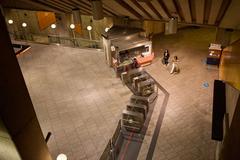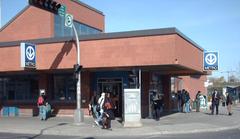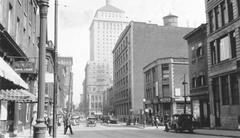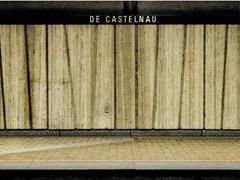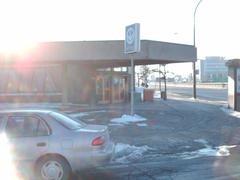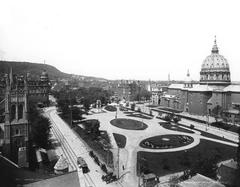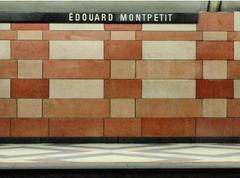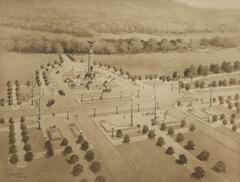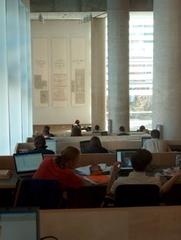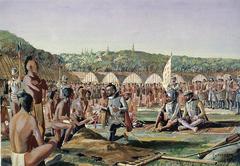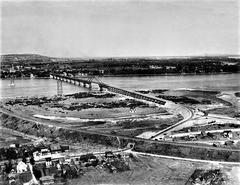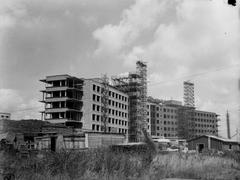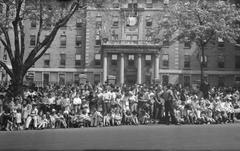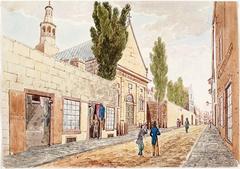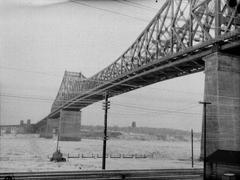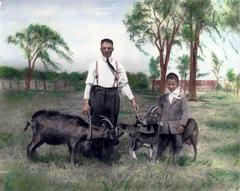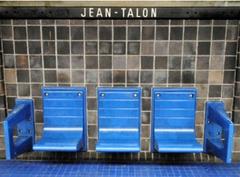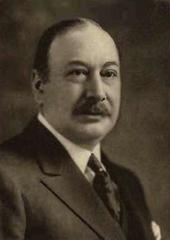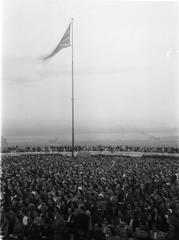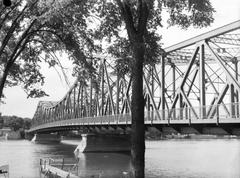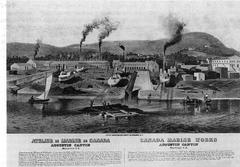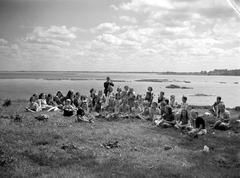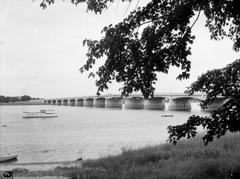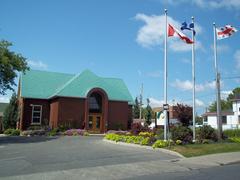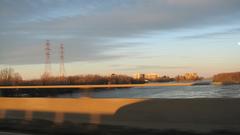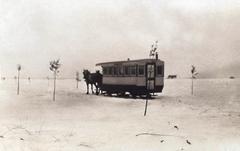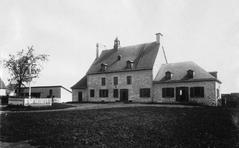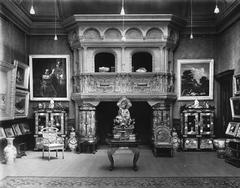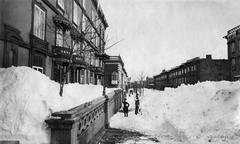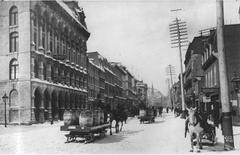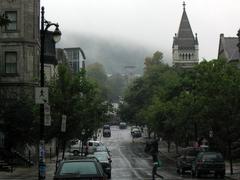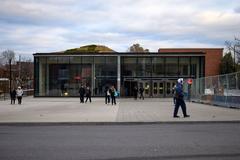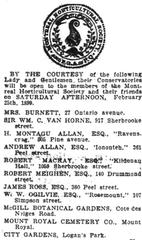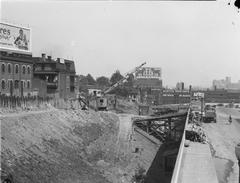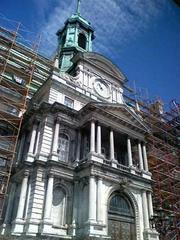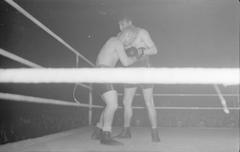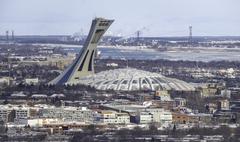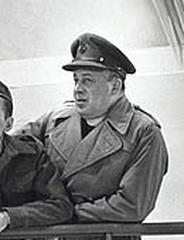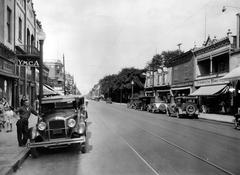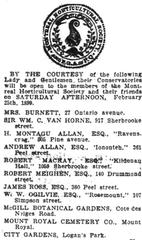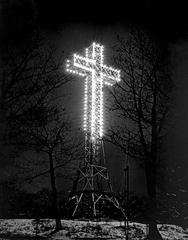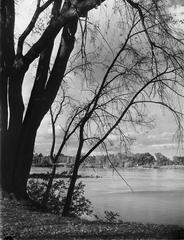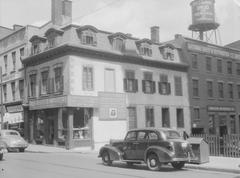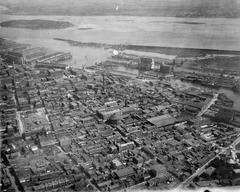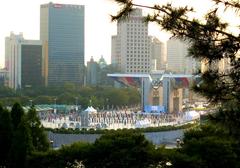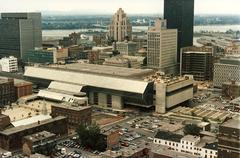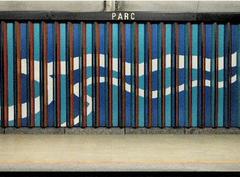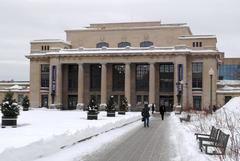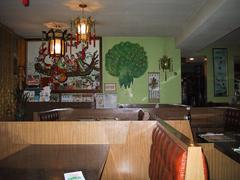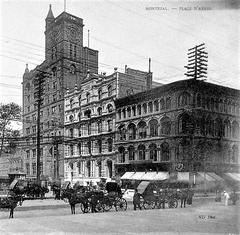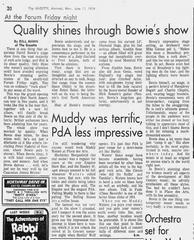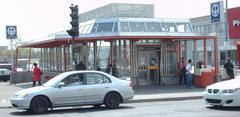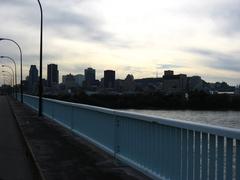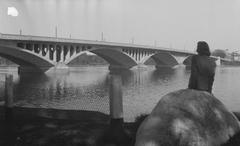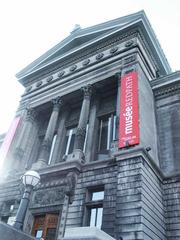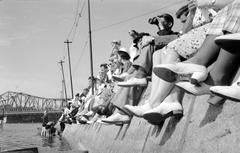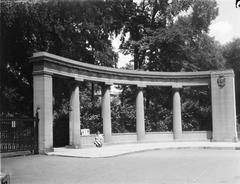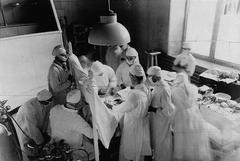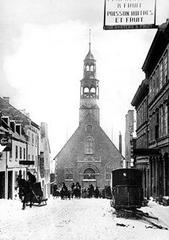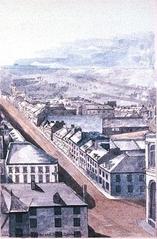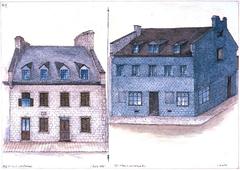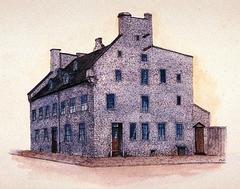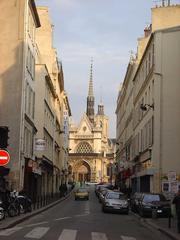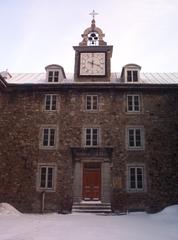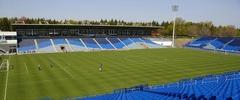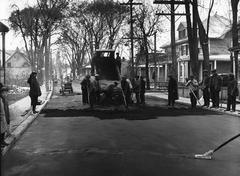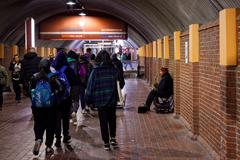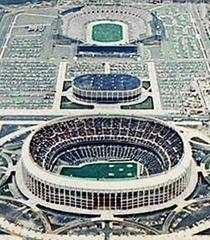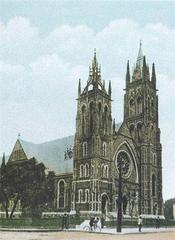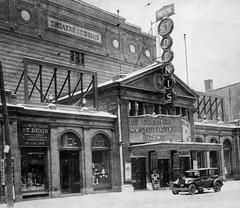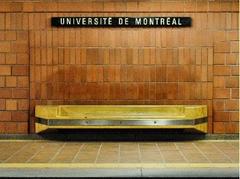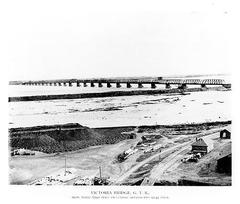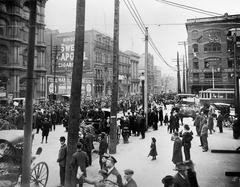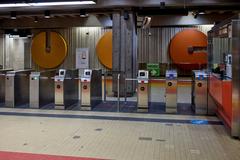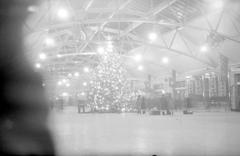Fairmount Avenue Montreal: Visiting Hours, Tickets & Historical Sites Guide
Date: 04/07/2025
Introduction to Fairmount Avenue Montreal: History & Significance
Fairmount Avenue, situated in Montreal’s vibrant Mile End neighborhood within the Plateau-Mont-Royal borough, stands as a living testament to the city’s multicultural heritage, immigrant history, and urban dynamism. Established in the late 19th century amid significant waves of Eastern European Jewish immigration, the avenue grew into a cultural and culinary hub, renowned for its Montreal-style bagels, distinct architecture, and lively arts scene. Iconic institutions such as Fairmount Bagel, founded in 1919 by Isadore Shlafman, have shaped its reputation, drawing food lovers from around the world. Today, Fairmount Avenue reflects Montreal’s ever-evolving identity through its historic landmarks, community organizations, diverse eateries, and creative energy, making it a must-visit destination for both locals and tourists (escapism.to; The Tribune; Authentik Canada).
Table of Contents
- Introduction
- Historical Development
- Jewish Heritage & Culinary Traditions
- Architectural & Social Evolution
- Community & Civic Institutions
- Visiting Fairmount Avenue: Essential Information
- Culinary Highlights & Café Culture
- Street Art & Creative Scene
- Parks & Green Spaces
- Shopping & Boutiques
- Religious & Cultural Landmarks
- Festivals & Community Events
- Architectural Features
- Practical Visitor Tips
- FAQ
- Visuals & Media
- References
- Conclusion & Call to Action
Historical Development
Fairmount Avenue’s origins are rooted in the urbanization of Mile End during Montreal’s late-19th-century expansion. As the city grid stretched northward, new residents—especially Ashkenazi Jews fleeing Eastern Europe—settled here, bringing traditions, businesses, and culinary skills that would define the neighborhood’s character (escapism.to; mapliv.com).
Jewish Heritage & Culinary Traditions
By the early 1900s, Fairmount Avenue emerged as a heart of Montreal’s Jewish community. Bakeries, synagogues, and shops flourished, with Fairmount Bagel (est. 1919) gaining iconic status for its wood-fired, hand-rolled bagels (escapism.to). St-Viateur Bagel, founded in 1957 nearby, continues this tradition, with both bakeries serving as enduring symbols of the neighborhood’s culinary legacy (The Tribune).
Montreal-style bagels are distinct—smaller, denser, and sweeter than their New York counterparts, boiled in honey water, then baked in wood-fired ovens. These bakeries are not only destinations for food, but also gathering places for generations of families and visitors.
Architectural & Social Evolution
Fairmount Avenue showcases early-20th-century Montreal architecture—triplexes, exterior staircases, and mixed-use buildings. Historic sites like Fairmount Hall (1907) and the Fairmount Branch YMCA (established in 1909) highlight the area’s longstanding commitment to social engagement and community support (memoire.mile-end.qc.ca). Over time, an influx of artists, musicians, and immigrants further enriched the neighborhood’s creative and social fabric (localfoodtours.com).
Community & Civic Institutions
Institutions like the Park Avenue YMCA have played a pivotal role in community-building, evolving alongside the neighborhood. The new facility, completed in 1993, continues to offer recreational and social services, reflecting Mile End’s spirit of inclusivity and civic engagement (memoire.mile-end.qc.ca).
Visiting Fairmount Avenue: Essential Information
Getting There
Fairmount Avenue is easily accessible by public transit. The Laurier and Mont-Royal metro stations (Orange Line) are within walking distance, and several bus routes run along Park Avenue and Saint-Laurent Boulevard.
Best Times to Visit
Spring through fall offers the best weather for exploring on foot. Weekends are lively, especially near popular eateries, while weekday mornings provide a quieter experience.
Accessibility
The street is pedestrian-friendly with curb cuts and sidewalks. While many businesses are accessible, some older buildings may have steps or narrow entrances.
Notable Spots & Photo Ops
- Fairmount Bagel: Legendary for traditional bagels baked in a wood-fired oven.
- Street Art & Murals: Vibrant works by artists like Roadsworth and FONKi.
- Cafés & Shops: Unique spots such as La Drogeria Fine (Italian gnocchi) and Kem Coba (artisanal ice cream) (localfoodtours.com).
Nearby Attractions
- Mile End’s boutiques and bookstores
- Parc Jeanne-Mance (urban park, sports facilities)
- Saint-Viateur Bagel (another bagel icon)
Guided Tours & Special Events
Local companies offer walking and food tours of Mile End, often including Fairmount Avenue. Seasonal festivals and neighborhood events further enrich the experience.
Culinary Highlights & Café Culture
Fairmount Avenue is synonymous with Montreal’s unique bagel culture. Fairmount Bagel has been hand-rolling, boiling, and baking bagels in wood-fired ovens since 1919, offering flavors like sesame, poppy, and multigrain around the clock (Authentik Canada). Nearby, St-Viateur Bagel is a worthy rival, and both are essential stops for foodies (The Broke Backpacker).
The area’s café culture is equally rich—Café Olimpico is a local favorite for espresso and people-watching, while bakeries like Boulangerie Guillaume and lunch counters like Wilensky’s Light Lunch showcase the neighborhood’s multicultural roots.
Street Art & Creative Scene
Fairmount Avenue and its surroundings feature an abundance of murals and public art, with the annual MURAL Festival bringing new works by international artists each June (The Geographical Cure). Independent galleries and pop-up spaces regularly host exhibitions and events, reflecting the area’s creative pulse.
Parks & Green Spaces
- Parc Jeanne-Mance: Expansive park south of Fairmount Avenue, open daily from 6 a.m. to 11 p.m. (montreal.ca).
- Parc Laurier: East of Fairmount, with playgrounds, pools, and walking paths, open from 7 a.m. to 10 p.m. (montreal.ca).
Shopping & Boutiques
Fairmount Avenue is dotted with independent shops, such as Annex Vintage for curated fashion and Drawn & Quarterly for graphic novels and literary events. Specialty food stores and grocers offer local and imported delicacies, perfect for picnics or gifts.
Religious & Cultural Landmarks
The Mile End’s Jewish heritage is visible in historic synagogues and community centers, though not all are open for visits. Walking tours often include stops for architectural and cultural context (Best Canada Tour).
Festivals & Community Events
Neighborhood festivals, including the Festival des arts de ruelle (FAR), bring music, art, and performances to Fairmount Avenue and nearby streets. Food tours and cultural walks are available through local companies (The Geographical Cure).
Architectural Features
Classic Montreal row houses, colorful facades, and wrought-iron staircases line the avenue. Many storefronts retain original signage and historic details, reflecting the area’s layered history (Best Canada Tour).
Practical Visitor Tips
- Getting There: Accessible by metro (Laurier, Outremont) and bus; BIXI bike rentals are available (Authentik Canada).
- Visiting Hours & Tickets: Most businesses open early to late; Fairmount Bagel and St-Viateur offer 24-hour service on weekends. No entry fees for the avenue; tours and some events may require booking.
- Accessibility: Most public spaces are accessible; some older shops may have steps.
- Best Times: Spring to fall for walking; early mornings for quiet visits; festival season for cultural events (MTL.org).
- Etiquette: Respect local residents. Tipping is customary; French greetings are appreciated.
Frequently Asked Questions (FAQ)
Q: What are the visiting hours for Fairmount Avenue’s bakeries?
A: Fairmount Bagel is open 24/7; most other shops open between 6:00 AM and 10:00 PM.
Q: Are there tickets required to visit Fairmount Avenue?
A: No, the street is public and free to explore. Tours and festivals may require tickets.
Q: Is Fairmount Avenue accessible for wheelchairs?
A: Sidewalks are accessible, but some older buildings have limited access.
Q: How do I reach Fairmount Avenue by public transit?
A: Use the Laurier or Outremont metro stations, or buses along Park Avenue.
Q: Are guided tours available?
A: Yes, several companies offer historical and culinary tours. Book in advance for popular times.
Visuals & Media
Enhance your visit with virtual tours, maps, and high-quality images of Fairmount Bagel, murals, and bustling street scenes. Ensure images have descriptive alt text for accessibility.
References
- Escapism.to: Montreal Bagels & Fairmount Avenue
- The Tribune: St-Viateur & Fairmount Bagel Histories
- Authentik Canada: Montreal Neighborhood Guide
- Best Canada Tour: Mile End Cultural Mosaic
- Local Food Tours: Mile End Things to Do
- MTL.org: Montreal Festivals & Events
Conclusion & Call to Action
Fairmount Avenue is a vibrant microcosm of Montreal’s multicultural spirit, blending immigrant history, world-famous bagels, creative energy, and welcoming community life. Whether sampling a fresh bagel, photographing vivid murals, or joining a festival, you’ll experience the best of Montreal’s past and present.
Plan your visit by checking bakery hours, considering a guided tour, and exploring the surrounding Mile End neighborhood. For more travel tips and personalized guides, download the Audiala app and follow us on social media for the latest updates and insider recommendations.
